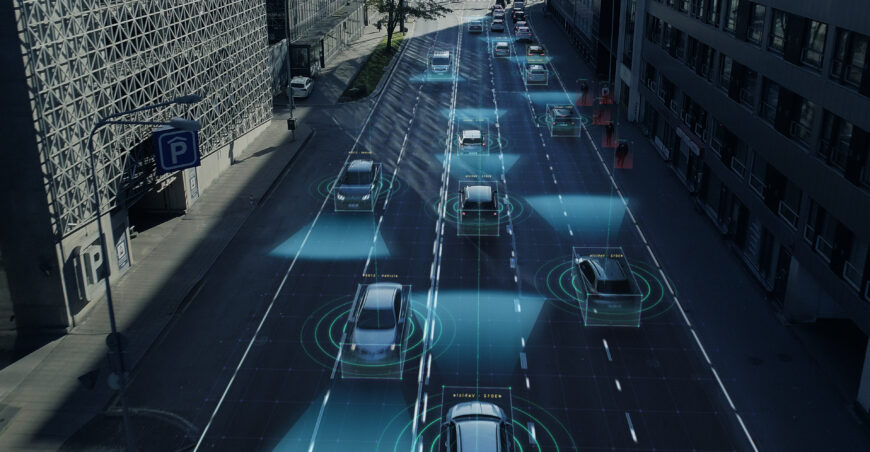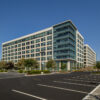Autonomous vehicles are no longer a futuristic concept; they are increasingly becoming a reality. As technology advances, the widespread adoption of AVs is expected to have a transformative impact on urban commercial real estate development. From changing traffic patterns to influencing property values, the advent of self-driving cars is set to reshape the urban landscape in profound ways. This article explores the several effects of AVs on urban commercial real estate, highlighting the opportunities and challenges that lie ahead.
Redefining Urban Mobility
The most immediate and visible impact of autonomous vehicles will be on urban mobility. With AVs, traffic congestion is expected to decrease significantly. These vehicles can communicate with each other and with traffic management systems to optimize routes, reduce accidents, and maintain smooth traffic flow. As a result, cities can expect to see fewer traffic jams and more efficient transportation networks.
This improved mobility will make urban areas more accessible, potentially increasing the desirability of commercial properties located in previously congested areas. For example, office spaces in city centers may see a surge in demand as commuting becomes more convenient and predictable. Conversely, areas that were traditionally considered prime locations due to their proximity to public transportation hubs might experience a shift in value dynamics.
Parking Real Estate Shift
One of the most significant changes AVs will bring to urban commercial real estate is the reduced need for parking spaces. Today, a substantial portion of urban land is dedicated to parking lots and garages. With AVs, this requirement is expected to diminish dramatically. Self-driving cars can drop off passengers and then park themselves in remote locations or continue to circulate, picking up other passengers.
This reduction in parking demand presents a unique opportunity for urban redevelopment. Cities can repurpose parking lots and garages into more productive uses such as commercial buildings, parks, or residential complexes. Developers might find new opportunities in converting underutilized parking structures into profitable commercial spaces. This shift could lead to a significant increase in available real estate for development, contributing to the densification and revitalization of urban centers.
Impact on Logistics and Warehousing
The logistics and warehousing sectors are also expected to undergo substantial changes with the advent of autonomous vehicles. Self-driving trucks and delivery vans will revolutionize the way goods are transported and distributed within urban areas. These vehicles can operate 24/7, reducing delivery times and increasing efficiency.
Urban commercial real estate will need to adapt to this new logistics landscape. Warehousing facilities may need to be located closer to city centers to facilitate faster deliveries. The demand for smaller, more flexible storage spaces might increase as companies look to optimize their last-mile delivery operations. Additionally, commercial properties with easy access to major transportation routes and AV-friendly infrastructure will become highly sought after.
Autonomous Vehicles Impact on Retail and Office Spaces
The rise of AVs will also impact retail and office spaces in urban areas. Retail properties may see a shift in consumer behavior as AVs enable more convenient and efficient travel to and from shopping destinations. This could lead to an increase in foot traffic for urban retail centers, enhancing their attractiveness to tenants and investors. On the other hand, the flexibility offered by AVs may also support the growth of suburban retail centers, as consumers can travel longer distances more comfortably. This dual impact will require retail developers and investors to carefully analyze location strategies and adapt to the changing dynamics of consumer preferences.
In the office sector, the ability of AVs to provide seamless commutes could influence the design and location of office buildings. Urban office spaces may become more appealing as AVs reduce the stress and time associated with commuting. Companies might prioritize locations that offer employees easy access to AV services, potentially increasing demand for urban office real estate.
Environmental and Sustainability Considerations
Autonomous vehicles can contribute significantly to environmental sustainability. AVs are expected to be predominantly electric, reducing greenhouse gas emissions and air pollution in urban areas. This environmental benefit aligns with the growing emphasis on sustainability in commercial real estate development.
Developers can leverage the environmental advantages of AVs to create greener, more sustainable urban developments. Incorporating green spaces, energy-efficient building designs, and sustainable materials will enhance the appeal of commercial properties in an increasingly eco-conscious market.
Challenges and Considerations
While the potential benefits of AVs for urban commercial real estate are substantial, several challenges and considerations must be addressed. The transition to AVs will require significant investment in new infrastructure, including smart roads, charging stations, and updated traffic management systems. Urban areas will need to adapt to these technological requirements, which may involve substantial costs and regulatory changes.
Furthermore, the widespread adoption of AVs could lead to job displacement in sectors such as driving and transportation, affecting the economic landscape of urban areas. Policymakers and developers must consider strategies to mitigate these socio-economic impacts, such as investing in retraining programs and creating new employment opportunities in emerging sectors.
Preparing for the Future
To maximize the opportunities presented by AVs, commercial real estate developers and investors must adopt a forward-thinking approach. Staying informed about technological advancements and regulatory changes is crucial for making informed decisions. Collaboration with urban planners, technology providers, and policymakers will be essential to create integrated, future-proof developments.
Investing in flexible and adaptable property designs will also be key. As the full impact of AVs on urban mobility and infrastructure becomes clearer, properties that can easily adapt to changing needs will hold a competitive advantage. For instance, designing buildings with modular parking structures that can be converted into other uses as parking demand decreases will provide long-term value.
The rising of autonomous vehicles represents a transformative force for urban commercial real estate development. By redefining urban mobility, transforming logistics and distribution, impacting retail and office spaces, and promoting environmental sustainability, AVs offer a lot of opportunities for developers and investors. However, navigating the challenges and uncertainties associated with this technological shift will require strategic planning, collaboration, and a commitment to adaptability. As cities around the world embrace AV technology, the commercial real estate sector must be prepared to innovate and evolve, shaping the urban landscapes of the future.
If you are interested in learning more about the commercial real estate market, feel free to reach out to us at ICRE Investment Team anytime. We’d be happy to help supply you with information on any relevant properties or markets, alongside any connections in lending, investing, brokerage service or consulting that you might need!
















